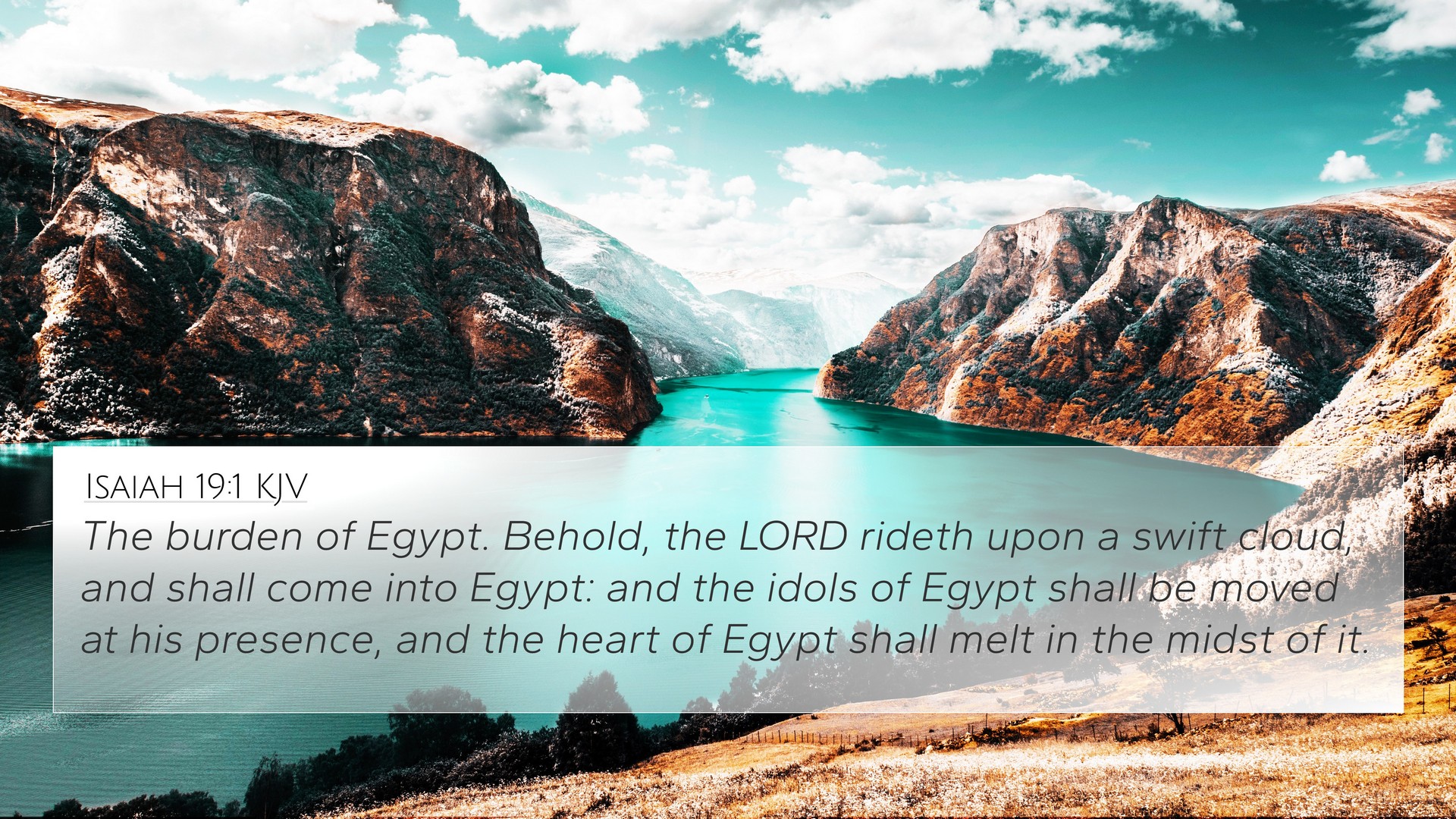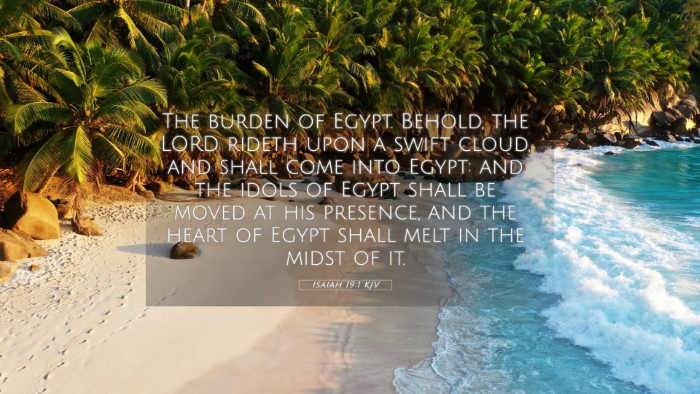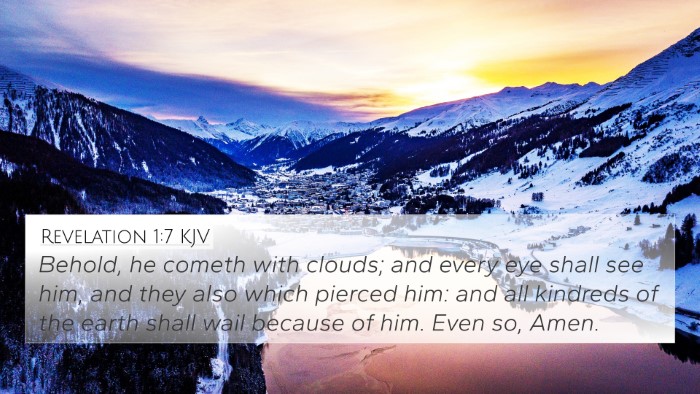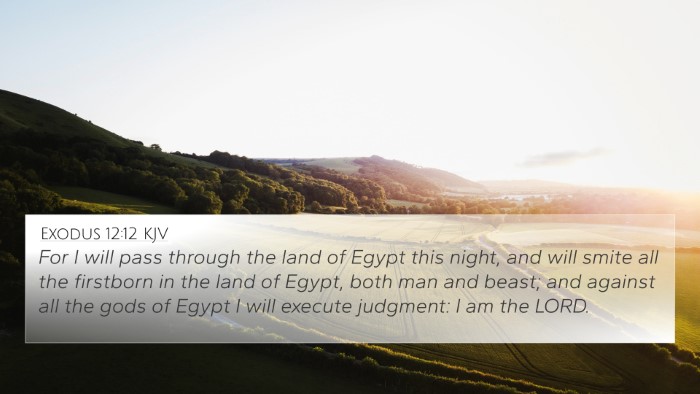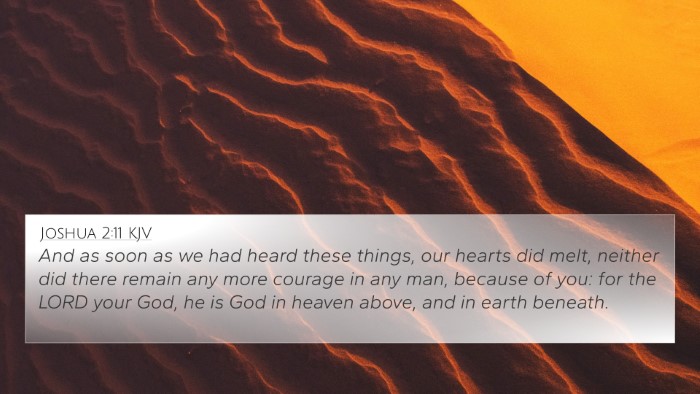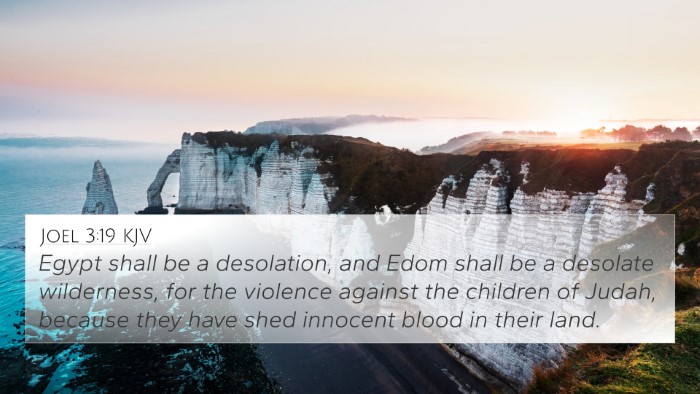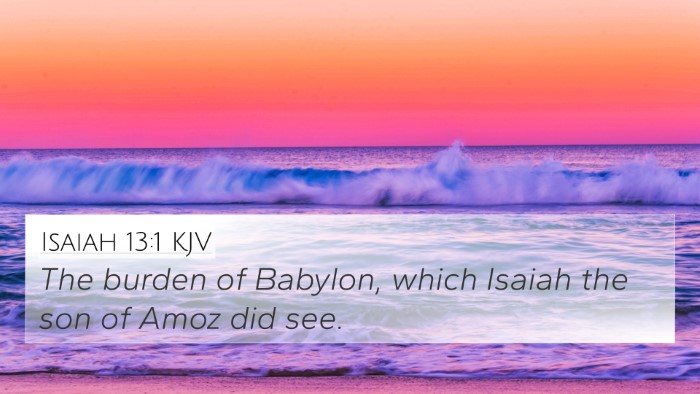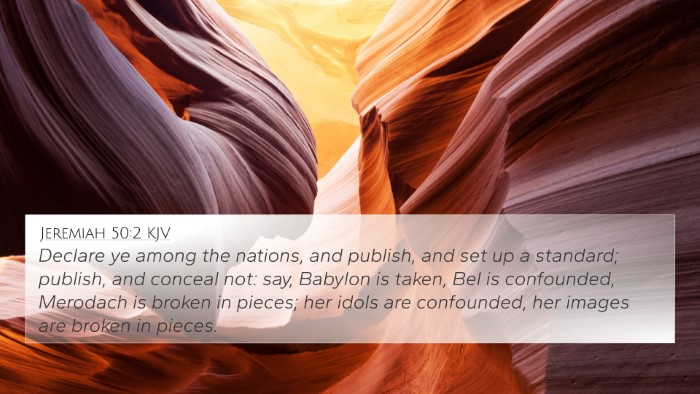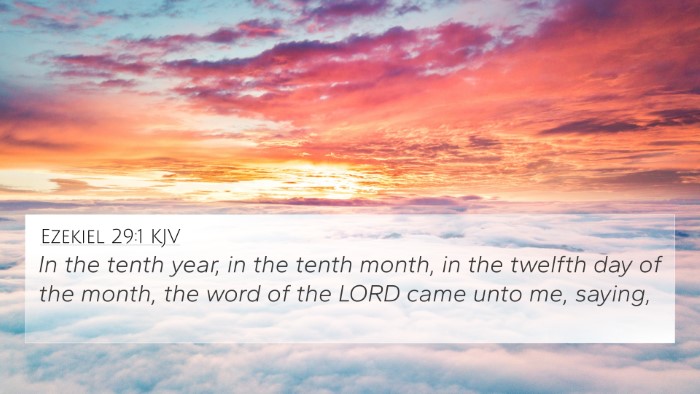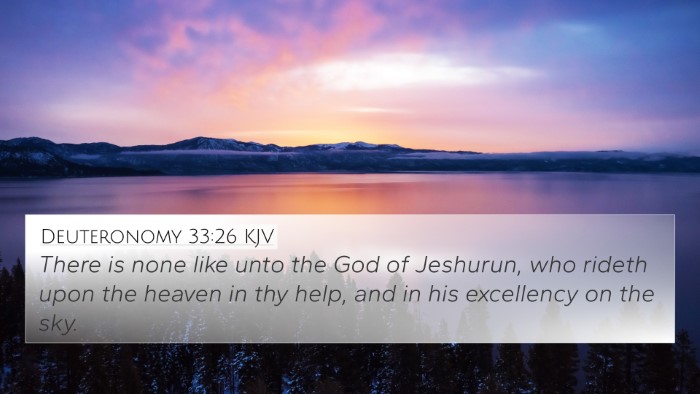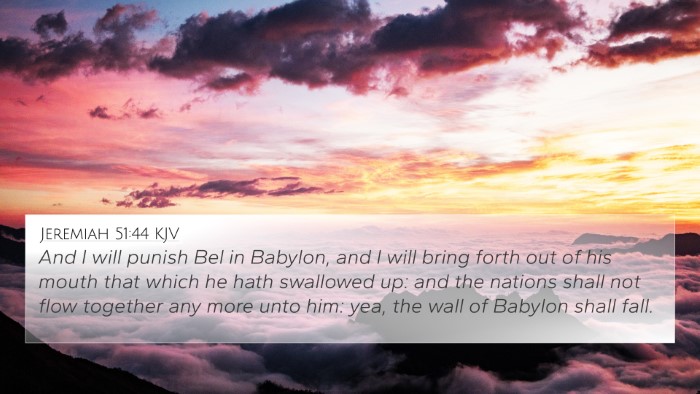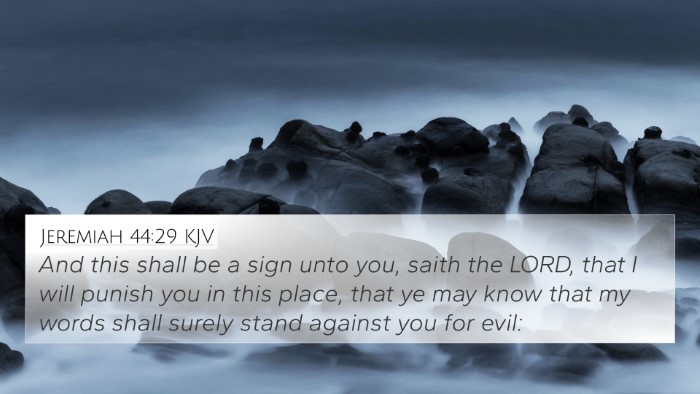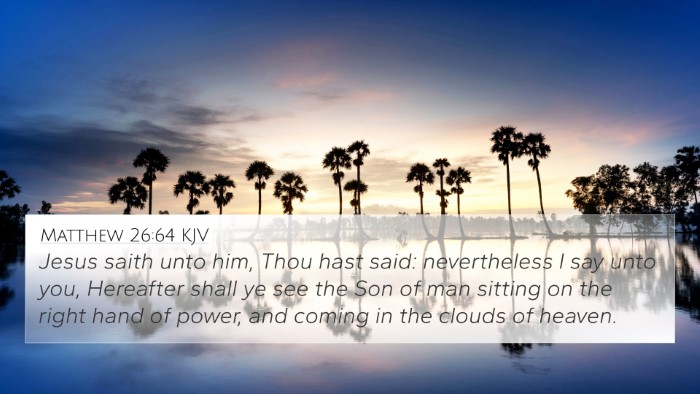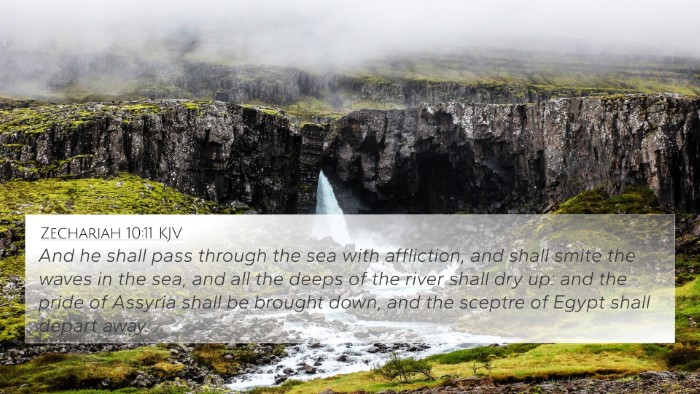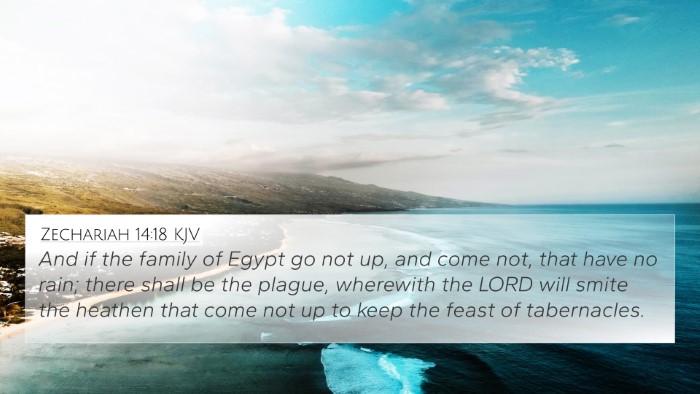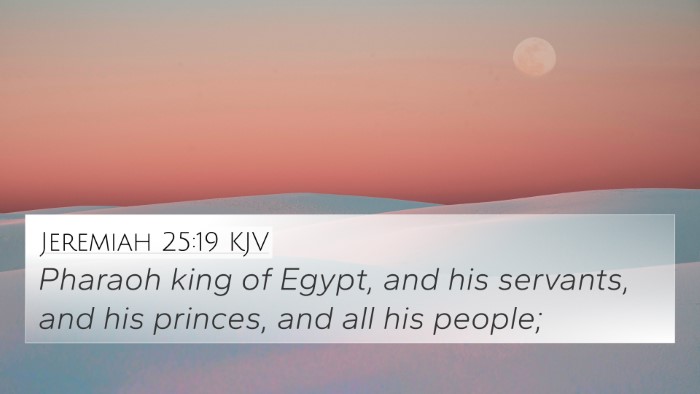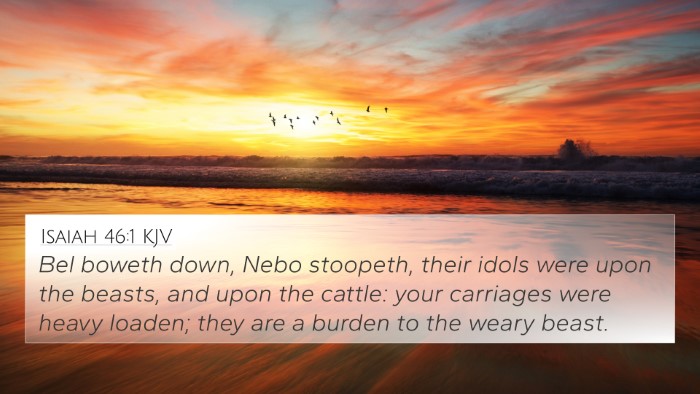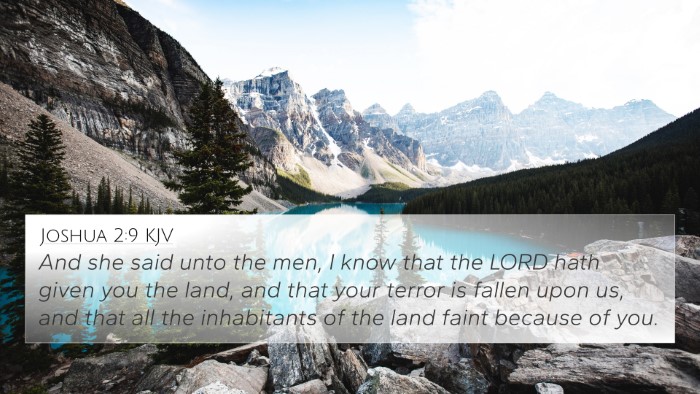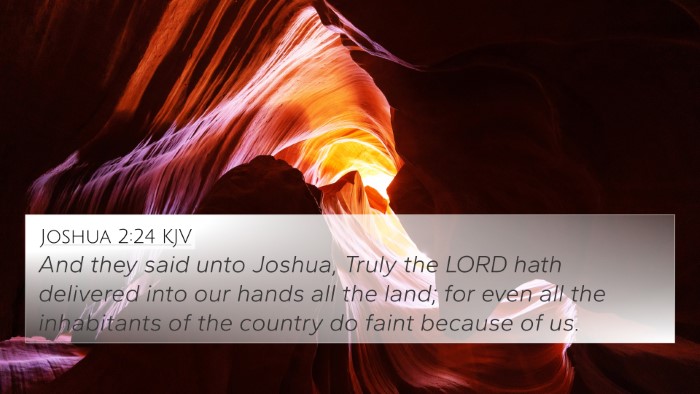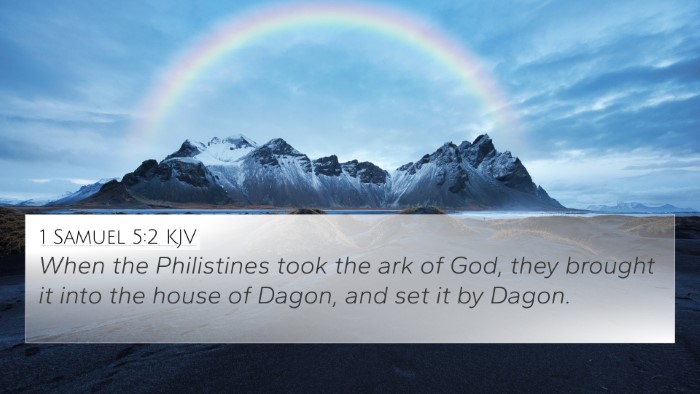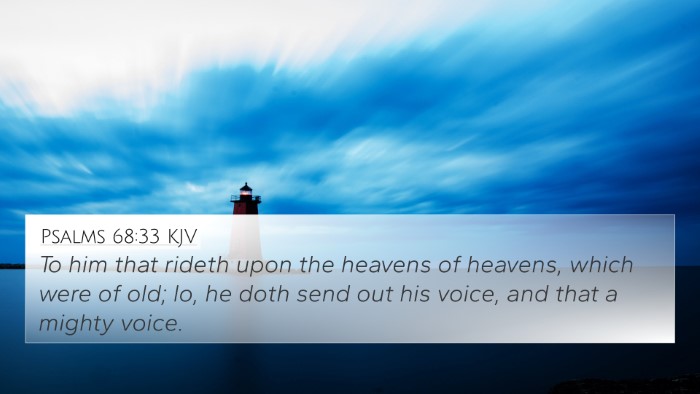Understanding Isaiah 19:1
Isaiah 19:1 states, "The burden of Egypt. Behold, the Lord rideth upon a swift cloud, and shall come into Egypt: and the idols of Egypt shall be moved at his presence, and the heart of Egypt shall melt in the midst of it." This verse sets the tone for a prophetic message concerning Egypt, one that highlights both God's sovereignty and His impending judgment upon the nation.
Contextual Overview
The verse serves as an introductory declaration, identifying the intent behind the message God is bringing to Egypt. Biblical scholars interpret this as not merely a judgment, but also an indication of God's ultimate control over nations, including a call back to Himself.
Commentary Insights
Matthew Henry's Commentary
Matthew Henry emphasizes that this passage speaks to the power of God as He comes to judge Egypt. The phrase "swift cloud" represents the speed and might with which He will execute His judgments. According to Henry, the idols of Egypt will tremble at His approach, signifying a devastating blow to the false gods that the Egyptians relied upon.
Albert Barnes' Notes
Albert Barnes highlights the significance of the "cloud," which in Scripture often represents God's presence and glory. The judgment upon Egypt is not only physical but spiritual, as their reliance on idols is called into question. Barnes explains that the melting of the heart symbolizes a profound fear and acknowledgment of God's authority among the Egyptians.
Adam Clarke's Commentary
Adam Clarke relates this verse to the broader narrative of God’s relationship with nations. Clarke points out that God’s appearance in this swift cloud signifies His active involvement in the world affairs of men. He underscores the inevitable result of divine presence, where man-made structures (both physical and spiritual) are shown to be worthless in the sight of the Almighty.
Thematic Connections and Cross-References
Isaiah 19:1 can be connected with various other scriptural texts that highlight similar themes of God's judgment, power over nations, and the futility of idol worship:
- Exodus 12:12 - God's judgment upon the gods of Egypt during the Passover.
- Jeremiah 46:25 - A declaration of judgment against the multitude of Egypt.
- Zephaniah 2:15 - Similar themes of destruction for Egypt as a proud nation.
- Ezekiel 30:6-8 - A prophecy about the downfall of Egypt.
- Isaiah 44:9-20 - A description of the futility of idol-making.
- Isaiah 45:20-22 - An affirmation that there is no other god but the Lord.
- Romans 1:21-23 - A New Testament reflection on the result of not acknowledging God and turning to idolatry.
Synthesizing the Insights
The combined insights from these commentaries illustrate the key message of Isaiah 19:1—that regardless of strength and might perceived in earthly powers like Egypt, God’s supremacy reigns. This passage serves as a warning and a call to repentance, revealing that the ultimate outcome of turning away from God leads to destruction.
Application and Reflection
For modern readers, this verse acts as a reminder of the dangers of turning to materialism and idol worship. It is crucial to reflect upon where one places their trust and to recognize that God's involvement in worldly affairs continues today. Believers are encouraged to seek God’s guidance and to remember His ultimate authority in all matters of life.
Conclusion
Isaiah 19:1, therefore, resonates as a powerful reminder of God's sovereignty over nations and the futility of idolatry, compelling us to examine our own lives and the things we may be placing above Him. Through cross-referencing this verse with others, one can gain a comprehensive understanding of God’s message across the Scriptures.
